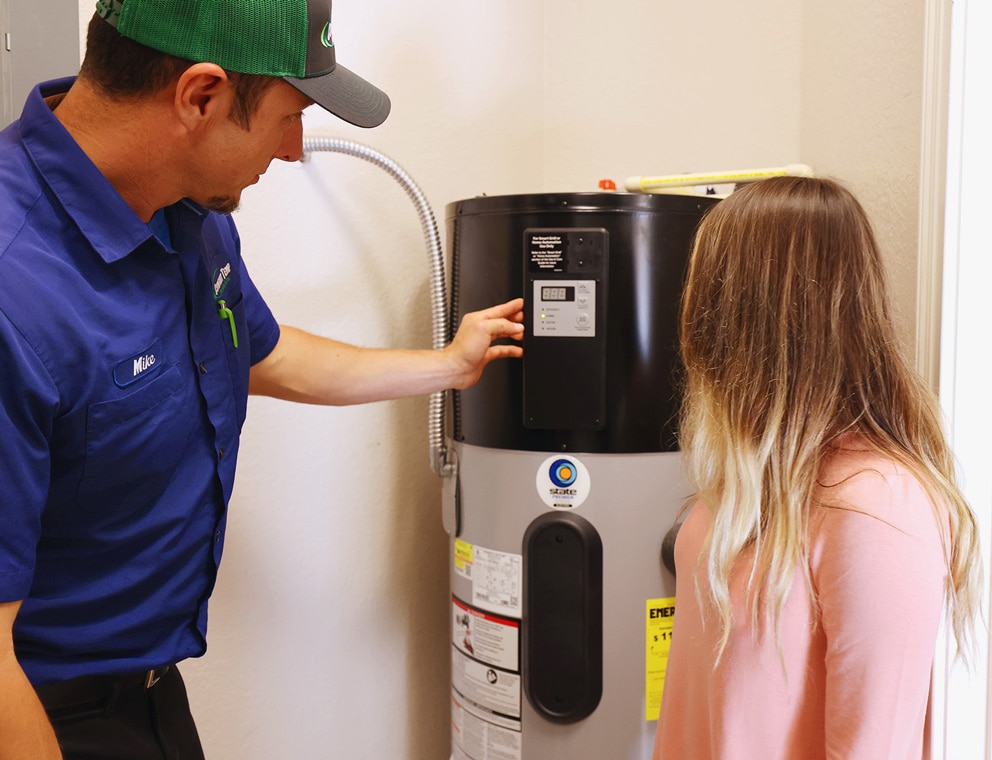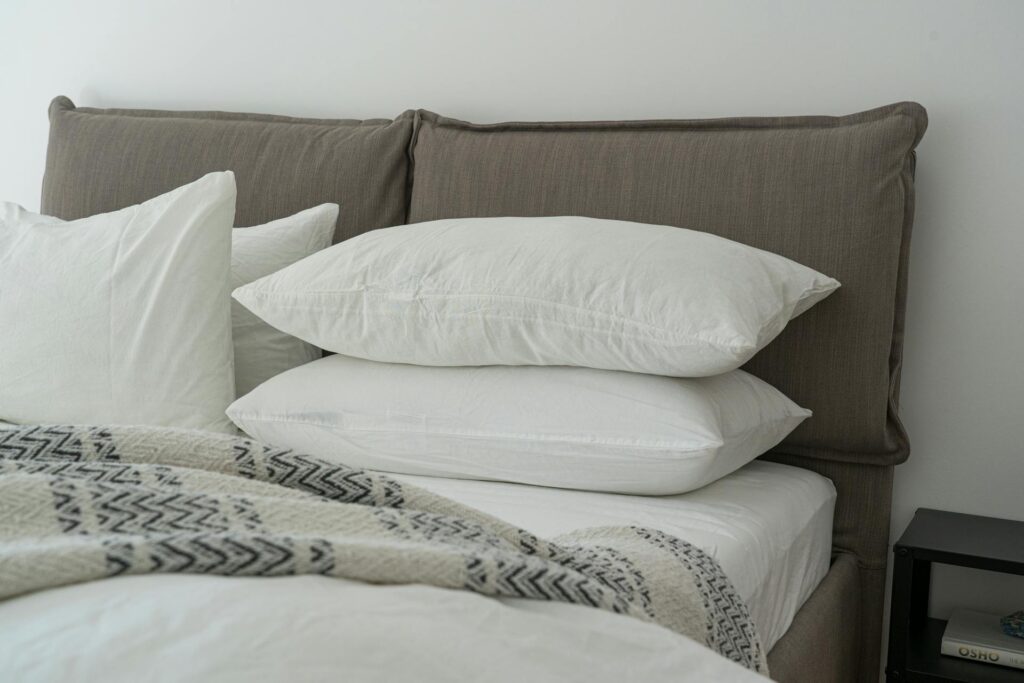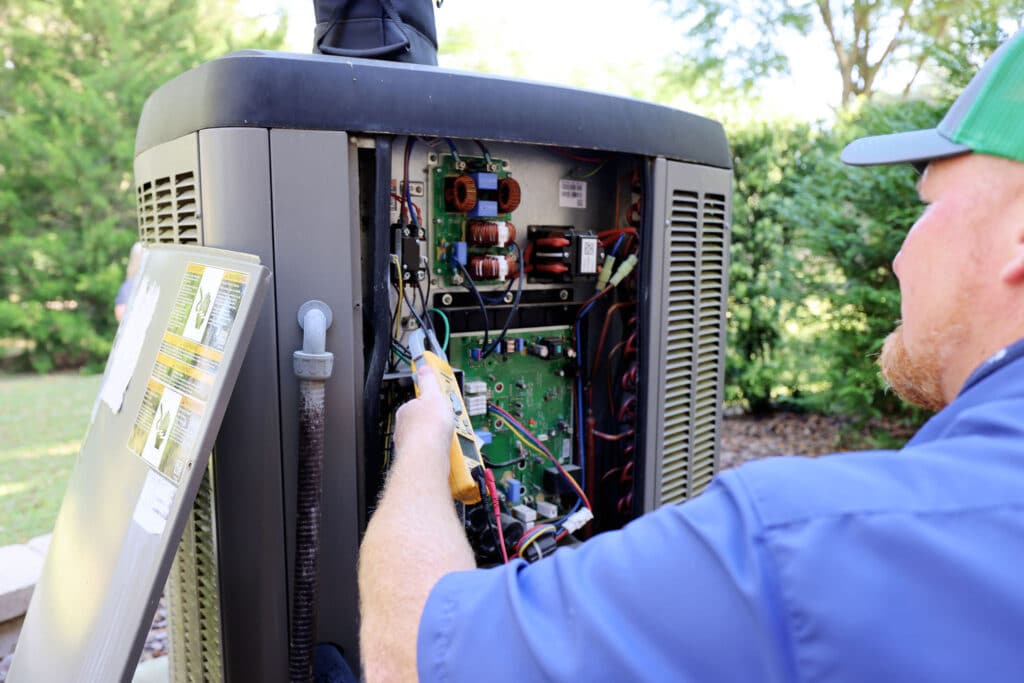Are you wondering if you should replace or repair your HVAC unit? As with any complex system in your home, air conditioning and heating units have an expiration date, after which they will no longer work efficiently or keep you comfortable. And, while there is no doubt that proper maintenance services help prolong the life of your home or business’s HVAC, all units eventually wear out.
So, considering the costs associated, how do you know when a repair is sufficient to keep your unit operating? Or should you replace it with an entirely new system? Is your HVAC system even to blame for cooling issues or increased energy bills? Today, we’ll go over what to look for when considering replacing or repairing your AC and what factors may be affecting your HVAC system as a whole.
Signs It’s Time to Replace an HVAC Unit
There are many factors to consider when questioning whether to repair or replace your HVAC unit. Here are four common signs we’ve seen precede an HVAC replacement.
1. Age
If properly maintained and serviced, HVAC units in Florida have a general lifespan of around 10–15 years. On the other hand, a unit forced to work harder—such as during an abnormally hot summer—or not adequately cared for could wear out after less time. A good rule of thumb is that you should replace your unit—or at the very least, have it inspected by a professional—if you have had your current one for 10 years or more.
2. Repairs
All HVAC units require some level of repair over their lifetime. But if your HVAC unit has required frequent repairs in the last few years and your Comfort Temp technicians predict that more servicing will be needed soon, you may be better off replacing your unit. Frequent repairs can indicate a full system failure in your unit’s future, and replacing it sooner rather than later can prevent you from losing AC or heat when you need it most.
3. Costs
Newer HVAC units offer greater energy efficiency, which saves you money on your monthly utility bills. When you weigh the cost you will spend on necessary repairs on your HVAC unit against the price of a new unit—paying attention to any offered warranties—you may find that it is more cost-effective for you to invest in a new system rather than paying costly repairs.
4. Size
As our HVAC knowledge has evolved, we have learned that an improperly sized unit during the initial installation of your home could impact the efficiency of your unit’s operation and the comfort of your environment. Ask your HVAC technician if a different sized unit may help increase your home’s energy efficiency and if it’s worth replacing.
Energy Bill Rising? Check These Culprits First
While a rising energy bill could be a sign of a faulty HVAC system, your roof and even your windows can affect the efficiency of your AC—perhaps more than you may realize. See how your roof and windows impact energy efficiency and your HVAC.
Roof
Roofs keep the outside elements out, but it also helps keep the air in. If your roof is not functioning properly, you can experience a rise in energy bills, a constantly running AC, and feeling as though your home won’t cool. There are several ways your roof can affect your HVAC unit:
- Color and Heat Absorption: Popular asphalt colors, such as black, gray, or brown, absorb a lot more heat than lighter colors, putting a strain on your air conditioning unit. This heat has nowhere to go but into your attic or home and causes your AC to run constantly. Installing a metal roof or choosing shingles with a .85 emittance rate or better can help reduce your roof’s heat absorption.
- Roof Ventilation: Ventilation allows for fresh air to enter your attic and cools it down. Either due to age or damage, your roof’s ventilation system can deteriorate and become less effective—trapping the hot air in your attic and turning it into an oven. This can cause both roof damage and strain on your AC. If you notice a sudden increase in your AC’s activity but your home still doesn’t seem to be cool, your roof’s ventilation may be to blame.
- Insulation: Insulation keeps cool air in during the summer and warm air in the winter. Proper insulation helps you save on AC bills since your HVAC system doesn’t have to work as hard to create cool or warm air. If your roof doesn’t have insulation or if the insulation is damaged, you may notice an increase in your electric bills and a decrease in your air conditioning efficiency.
- HVAC Duct Location: Many times, air ducts will be in attics in Florida homes. Most of the time, this will cause no issues. However, if you’re having trouble with your roof’s insulation or ventilation, the hot air from your attic can get into your ducts’ airflow and push that hot air into your home. This causes your HVAC’s efficiency to plummet as it’s warming your home rather than cooling it. Having regular duct cleanings and investing in a radiant barrier can help keep your ducts running properly and your home cool.
- Roof Condition: You may not know that a leak in your roof can also impact your AC’s energy. A leaky roof allows for water and moisture to get into your attic. If your ducts are in your roof or attic, this moisture can lead to growth, which can restrict the airflow and lower your air quality. Also, if you have insulation in your attic and it gets wet from a leak, it will lose its ability to keep your roof well insulated.
Windows
Windows affect air conditioning more than you might suspect. They are the largest openings in your home, and they can drastically change your home’s temperature. During hot Florida summers, sunlight streaming in can cause excess heat. It is important not only to have proper window coverings during the summer, but efficient windows to help conserve energy year-round. Inefficient windows can impact your HVAC in two main ways:
- Recurring Cold Drafts or AC Escaping: As your windows get older, the seals weaken and fail. This can result in drafts in the winter or cold air escaping in the summer, which will greatly reduce energy efficiency and increase your energy bills. Insulation not only comes from the sealing of your windows but from the panes as well. Single-pane windows tend to be older and lack the necessary insulation, which will cause your AC or heat pump to work harder to maintain a temperature.
- Condensation or Water Leakage: Windows with weakened or failing seals can cause water leakage and condensation build-up. Water, dirt, and air can enter through the broken seals of your window, causing damage to your home, furniture, or walls. Condensation may accumulate between the window panels. This is a sign of excess humidity in your home or a broken seal.
In order to keep your windows looking beautiful and staying efficient, they should be replaced every 15 to 20 years. However, this can vary depending on environmental factors as well as wear and tear. It is especially important to inspect your windows after a big storm!
Comfort Temp Helps You Decide Whether to Replace or Repair Your HVAC
If you are still unsure of whether you can repair your current HVAC unit or need to replace it with a newer model, our Comfort Temp expert technicians are here to help. We thoroughly inspect your system and advise you on the best route to take, customized for your individual needs. Once we have determined together what will work best for you, we are your repair and installation team—here for you every step of the way! Contact us today to set up your appointment.


